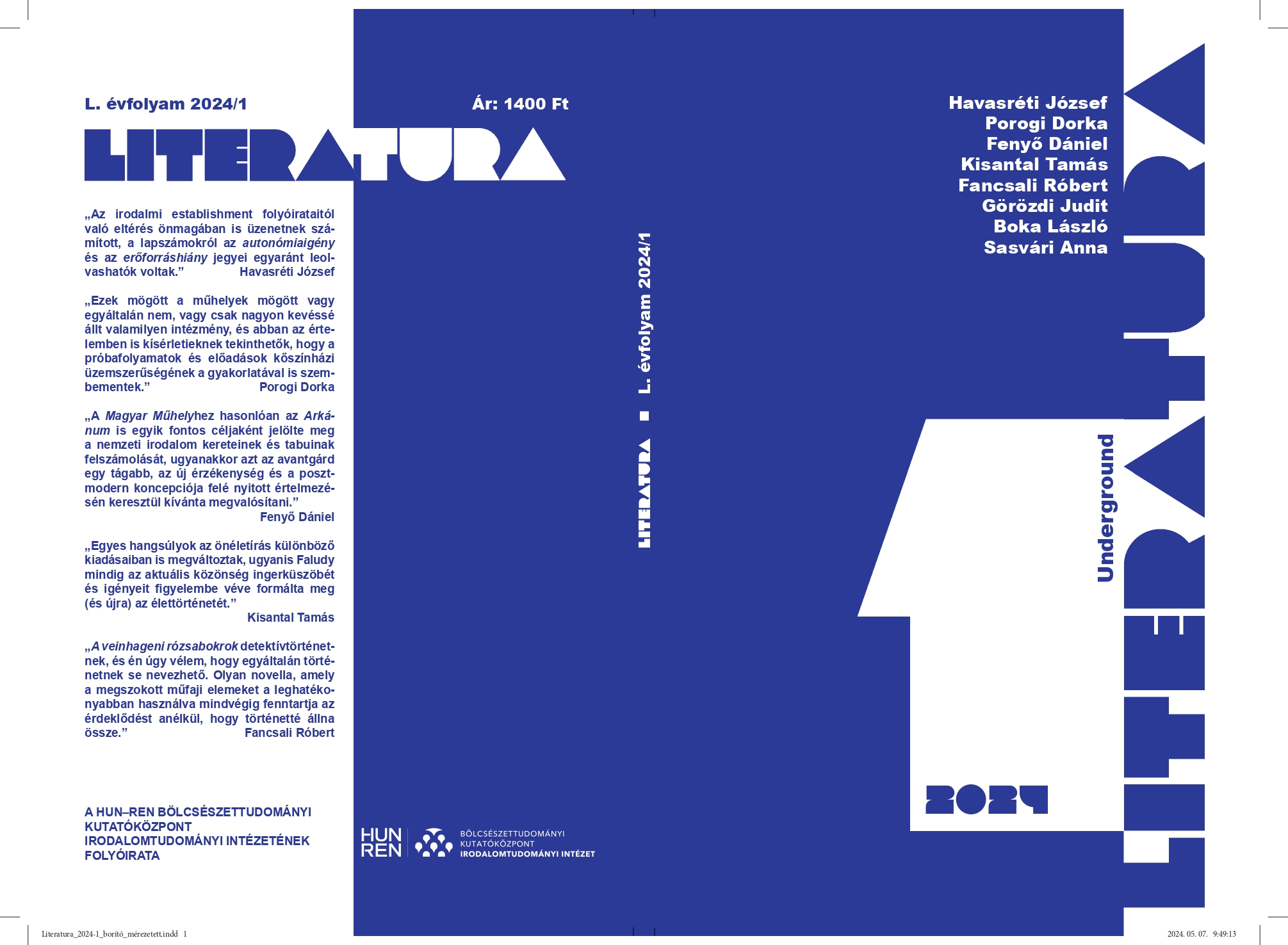The Reevaluation of the Hungarian Neo-Avant-Garde as a Literary Traditi
Positioning Magyar Műhely and Arkánum Journals in the Hungarian Literary Field of the 1980s
Abstract
My paper is focussed on the reevaluation of the Hungarian neo-avant-garde as a literary tradition. By the second half of the eighties, the structure of literary publicity had changed: literary experiments were partially accepted by the public literary field, consequently the previously dominant role of Magyar Műhely [Hungarian Workshop] as the distinguished platform of Hungarian neo-avant-garde art was diminished. In this altered historical context, emerging Hungarian writers reflecting on the avant-garde tradition began to explore other directions of the neo-avant-garde in order to develop their own artistic practice and the consciousness of tradition. Among these traditions and patterns there was the Arkánum [Arcane], a Hungarian journal edited in North America by Hungarian refugees from 1956. My paper explores this literary historical situation through the relationship of Magyar Műhely and Arkánum to the Hungarian literary field at that time. In literary history, and art history as well, the eighties are narrated as a period of the rise of postmodernism and the decline of the neo-avant-garde. The conflict between the Magyar Műhely and latter Hungarian experimental literary formations can also be seen as evidence of discontinuity between the neo-avant-garde and the new postmodernist sensibility. Despite all of this, the diminishing of Magyar Műhely’s canonical role can also be interpreted as a shift in the literary tradition of the the neo-avant-garde. My paper presents interpretive frameworks which are able to reveal common ground in the literary formations of Arkánum as both a neo-avant-garde project and new postmodernist sensibility.



